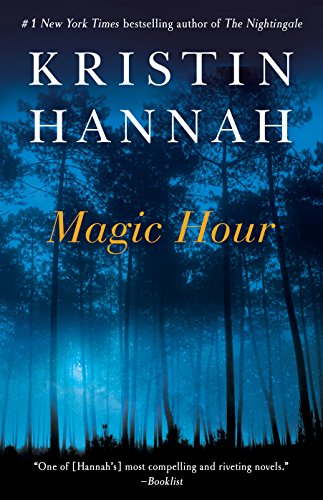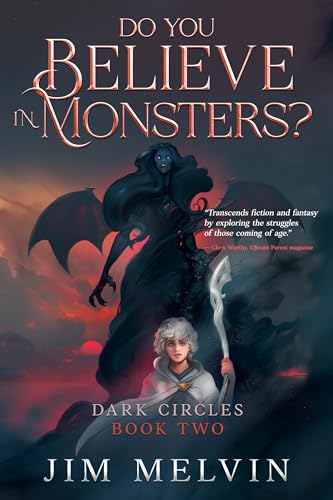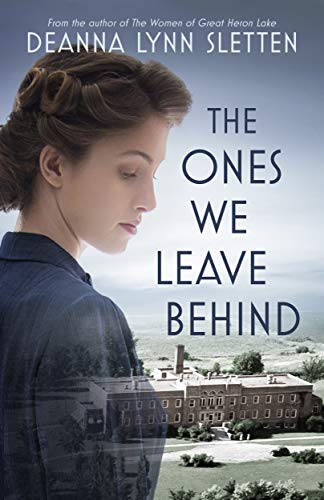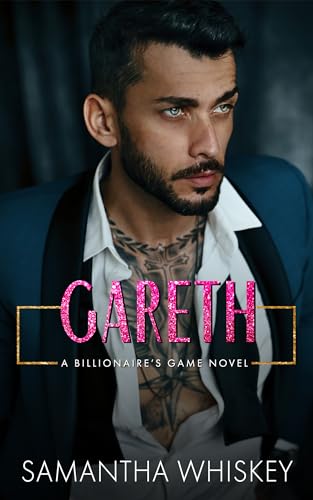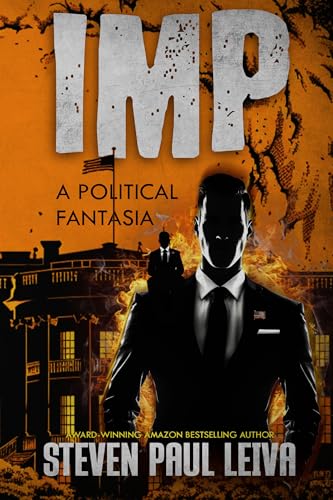Copyright 2010 by Paul Levine and reprinted here with his permission.
Chapter 1
Thy Client’s Wife
ON A STIFLING AUGUST DAY OF BECALMED WIND AND SWELTERING humidity, the Coast Guard plucked seven Haitians from a sinking raft in the Gulf Stream, the grand jury indicted three judges for extorting kickbacks from court-appointed lawyers, and the Miami City Commission renamed Twenty-second Avenue General Maximo Gomez Boulevard.
And Peter Tupton froze to death.
Tupton was wearing a European-style bikini swimsuit and a terry cloth beach jacket. Two empty bottles of Roederer Cristal champagne 1982 lay at his feet. His very blue feet. Two thousand six hundred forty-four other bottles-reds and whites, ports and sauternes, champagnes and Chardonnays, Cabernets and cordials-were stacked neatly in their little wooden bins.
A high-tech air-conditioning system kept the wine cellar at an even 56 degrees and 70 percent humidity. Hardly life-threatening, unless you wandered in from the pool deck sopping wet, guzzled two liters of bubbly, and passed out.
Cause of death: exposure due to hypothermia. Which didn’t keep the Miami Journal from seizing on a sexier headline:
ON YEAR’S HOTTEST DAY,
ENVIRONMENTAL ACTIVIST
FREEZES TO DEATH
The medical examiner reported that Tupton’s blood contained 0.32 percent alcohol. If he’d been driving, he could have been arrested three times. But he’d been swimming, then sipping mimosas on the pool deck. When he stumbled into the wine cellar, he must have kept drinking, this time leaving out the orange juice.
Cheers.
“He was a most disagreeable man,” Gina Florio said, dismissing the notion of the late Peter Tupton with a wave of the hand. It was a practiced gesture, a movement so slight as to suggest the insignificance of the subject. When the hand returned, it settled on my bare chest. I lay on my back in a bed that had a bullet hole in the headboard. The bed had been Exhibit A in a case involving a jealous husband and a .357 Magnum, and I picked it up cheap at a police auction of old evidence.
I stared at the ceiling fan, listening to its whompety-whomp while Gina traced figure eights with a blood-red fingernail across my pectorals. A crumpled bed sheet covered me from the waist down. Her clothing was simpler; there wasn’t any. She reclined on her side, propped on an elbow, the smooth slope of a bare hip distracting me from the hypnotizing effect of the fan. Outside the jalousie windows, the wind was picking up, the palm fronds swatting the sides of my coral-rock house.
A most disagreeable man. In earlier times, she would have called him a dickbrain.
Or if there were clergy on the premises, simply a birdturd.
But Gina was a sponge that absorbed the particulars of her surroundings, the good, the bad, and the pretentious. Lately, she’d been hanging out with the matrons of the Coral Gables Women’s Club. Finger sandwiches at the Biltmore, charity balls at the Fontainebleau, tennis at the club. Discussions of many disagreeable men. Mostly husbands, I’d bet.
“A swine, really,” Gina said. “A short, bald, lumpy swine who mashed out his cigarettes in my long-stemmed Iittala glasses.”
“Iittala, is it?”
“Don’t mock me, Jake. Finnish, top of the line. Nicky likes the best of everything.”
“That’s why he married you,” I said, without a trace of sarcasm.
“You’re still mocking me, you prick.”
Prick. Now, that was better. You can take the girl out of the chorus line, but …
“Not at all, Gina. You Ye a name brand. Just like Nicky’s Rolex, his Bentley, and … his Iittala.”
“What’s wrong with my name, anyway?”
Defensive now. She could play society wife with the white-shoe crowd at Riviera Country Club, but I’d known her too long.
“Nothing,” I said. “I’ve liked all your names. Each suited the occasion.”
“Even Maureen? Rhymes with latrine.”
“I didn’t know you then. You were Star when I met you.”
She made the little hand-wave again, and her butterscotched hair spilled across my chest, tickling me. Her movements hadn’t always been so subtle. When her name was Star Hampton, she jumped and squealed with the rest of the Dolphin Dolls at the Orange Bowl. She had long legs and a wide smile, but so did the others. What distinguished her was a quick mind and overriding ambition. Which hardly explained why she chose me-a second-string linebacker with a bum knee and slow feet-over a host of suitors that included two first-round draft choices with no-cut contracts and a sports agent who flew his own Lear. Then again, maybe it explained why she left me.
We were together two years, or about half my less-than-illustrious football career, and then she drifted away, leaving her name-and me-behind. When the gods finally determined that my absence from the Dolphins’ roster would affect neither season ticket sales nor the trade deficit with Japan, I enrolled in night law school. By then, Star had sailed to Grand Cayman with a gold-bullion salesman, the first of three or four husbands, depending if you counted a marriage performed by a ship’s captain on the high seas.
I hadn’t heard from her for a few years when she called my secretary, asking to set up an appointment with Mr. Jacob Lassiter, Esq. She wanted her latest marriage annulled after discovering the groom wasn’t an Arab sheikh, just a glib commodities broker from Libya who needed a green card. We became reacquainted, and Gina-though that wasn’t her name vet-kept drifting in and out of my life with the tide.
Sometimes, it was platonic. She’d complain about one man or another. The doctor was selfish; the bodybuilder dull; the TV newsman uncommunicative. I’d listen and give advice. Yeah, me, a guy without a wife, a live-in lover, or a parakeet.
Sometimes, it was romantic. In between her multiple marriages and my semirelationships, there would be long walks on the beach and warm nights under the paddle fan. One Sunday morning, I was making omelets-onions, capers, and cheese-when she came up behind me and gave me a dandy hug. “If I didn’t like you so much, Jake,” she whispered, “I’d marry you.”
And sometimes, it was business. There were small-claims suits over a botched modeling portfolio, an apartment with a leaking roof, and a dispute with a roommate over who was the recipient of a diamond necklace bequeathed by a grateful thief who had enjoyed their joint company during a rainy Labor Day weekend. And, of course, the name changes. She had been born Maureen Corcoran on a farm somewhere in the Midwest. A mutt name and a mutt place, she said long ago. So she changed her name and place whenever she deemed either unsuitable. She called herself Holly Holiday during one Christmas season, Tanya Galaxy when she became infatuated with an astronaut at Cape Canaveral, and Star Hampton when she dreamed of a Hollywood career.
Finally, she asked me to make it official: Maureen would become Gina.
“It goes well with Florio, don’t you think?” she had asked. “And Nicky likes it.”
Nicky.
What was he doing today? Making money, I supposed. Wondering whether he was going to get sued by the estate of one Peter Tupton. Maybe worrying about his wife, too. Had Gina said she was going to see her lawyer?
Their lawyer, now. I could see Gina cocking her head, asking Nicky if it wouldn’t be sweet to hire Jake Lassiter. You remember Jake, don’t you, darling?
Sure, he remembered.
* * *
Before he was filthy rich, Nicky Florio used to hang around the practice field. He was hawking someone else’s condos then, and he’d deliver an autographed football at each closing. If he couldn’t get Griese, Csonka, Kiick, Warfield, or Buoniconti, I’d sign my name. And theirs.
Nicky was a great salesman. He pretended to love football, always looking for the inside dope on the team. Injuries, mostly. How had practice gone? What was Shula’s mood? I’d give him a tip now and then, knowing what he was up to, but I never bet on games. Well, seldom. And I never bet against us.
* * *
Nicky probably balked when she mentioned me. I need another lawyer like I need another asshole. Besides, your old boyfriend’s just an ex-jock with a briefcase.
He was right. I don’t look like a lawyer, and I don’t act like a lawyer. I have a bent nose, and I tip the scales at a solid 223. My hair is too long and my tie either too wide or too narrow, too loud or too plain, depending on the fashion of the times. I’ve hit more blocking sleds than law books, and I live by my own rules, which is why I’ll never be president of the Bar Association or Rotary’s Man of the Year. I eat lunch in shirtsleeves at a fish joint on the Miami River, not in a tony club in a skyscraper. I laugh at feeble lawyer jokes:
How can you tell if a lawyer is lying?
His lips are moving.
And I do the best I can to inflict the least harm as I bob and weave through life. Which made me wonder just what the hell I was doing with Gina yet again.
If Nicky had said no, Gina would have waited, then tried again. When the neighbor sued over the property line, Give Jake a chance. I picture Nicky Florio running a hand through his black hair, slicked straight back with polisher. He’d squint, as if in deep thought, his dark eyes hooded. He’d shrug his thick shoulders: Sure, why not, he can’t screw it up too bad.Putting me down, building himself up. Hire the wife’s old boyfriend, something to gloat about at the club, tell the boys how he tacks a bonus onto the bill, like tossing crumbs to a pigeon.
To Nicky, I was a worker bee he could lease by the hour. He could buy anything, he was telling me, including Gina.
Well, who’s got her today, Nicky?
Was that it, I wondered, my infantile way of striking back? Hey, Lassiter, old buddy, what are you doing in bed with Maureen, Holly, Star, Gina? Don’t you have enough problems, what with the Florida Bar on your back? What would the ethics committee say about bedding down a client’s wife?
With all the single women available, what are you doing with a married one? South Beach is chock-full of unattached women, leggy models from New York, Paris, and Rome.
Downtown is wall-to-wall professionals in their business-lady pumps, charcoal suits, and silk blouses. The gym has an aerobics instructor plus a divorcee or two who brighten up when you do your curls. So what’s with this destructive, nowhere relationship mired in the past?
“Jake, what are you thinking about?” Gina asked.
“Star Hampton,” I answered, truthfully. I rearranged myself on the bed to look straight into her eyes. “Do you remember the time you hit me?”
“Was it only once?”
“Yeah. You were leaving me for some cowboy. A rodeo star named Tex or Slim.”
“It was Jim. Just Jim.”
“No, Jim was the Indy driver.”
“That was James,” she corrected me. “Or was he the tennis pro?”
“You hit me because I didn’t beg you to stay.”
“I don’t remember,” she said.
But I did.
* * *
We’d been living together in my apartment on Miami Beach. She stepped out of the shower, her hair smelling like a freshly mowed field. She kissed me, soft and slow, then said she was leaving. I told her I’d miss the wet towels balled up on the bathroom floor. She let fly a roundhouse right, bouncing it off my forehead, cursing as she broke a lacquered nail.
Good kiss, no hit.
She dressed quickly and tossed her belongings into a couple of gym bags. Then she said it to me, a parting line I was to hear time and again. “Maybe I’ll see you later,” she said, heading out the door. “And maybe I won’t.”
* * *
“Slugged anybody lately?” I asked.
She laughed. It was the old laugh. Hearty instead of refined. “Gawd, I was so young then. Did you know I turned thirty last April? You think I need a boob job? Am I starting to sag?”
She sat up, stretched her long legs across the bed, and hefted her bare breasts, one at a time, her chin pressed into her chest. The streaked blond hair hung straight over her eyes. Outside, the wind was crackling the palm fronds. Only three o’clock, but it had gotten dark inside the bedroom. I peered out the porthole-sized window. Gray clouds obscured the sun as a summer squall approached from the west.
“Jake! You’re ignoring me.”
So was Nicky, I thought. Maybe that was why she was here. Or was it just for old times’ sake?
“Can we be friends again?” she had asked when she showed up at my office for a lunch appointment.
“Friends?”
“Friends who screw,” she explained.
Which, come to think of it, is what we had been from the beginning. After all these years, I was still dazzled by her beauty, the granite cheekbones, the wide-set deep blue eyes rimmed with black, the body sculpted by daily workouts with a personal trainer. Attention must be paid to such a woman, I thought.
She dropped her breasts, which, as she well knew, sagged not a whit. “Jake?”
“Tell me more about Tupton,” I said.
“Ugh! No more talk about business.”
“I thought that’s what this was about.”
“Come on, Jake. That was an excuse. I missed you.”
She rolled on top of me and grabbed a handful of my sunbleached hair. “You get better-looking every year. I don’t know why I talked Nicky into hiring you. You’re too tall and too tanned and too damn sexy”
“That’s why you talked him into hiring me. And here I was hoping it was for my legal acumen.”
“It’s for your amorous acumen.” She let go of my hair and began nuzzling my neck.
“Look, Gina, you’re just bored. It’s an occupational hazard of the haut monde wife.”
Her teeth were leaving little marks on my earlobes. She whispered in my ear. “If you think I don’t know what that means, you’re trés trompé. My second husband took me to Paris. Or was it my third?”
“C’mon, let’s do some work-unless you want me to charge you two hundred fifty dollars an hour for-“
“A bargain at twice the price.”
“Gina. I’m serious.”
“I know you are. You’re suffering from postcoital guilt.”
“Really?”
“I’ve had therapy,” she said proudly. “My next-to-last ex-husband was a big believer in self-growth.”
“C’mon now, tell me more about Tupton.”
She sighed and rolled off me, her hair trailing across my chest. Her back toward me, I admired the twin dimples at the base of her spine. Then she turned to face me, her full lips pouting. “We invited him to the pool party to soften him up. Nicky’s bright idea. Why fight the guy, waste thousands on legal fees-“
“What better use for your money?”
“… when maybe we could reason with him, show him the good life, serve him some grilled pompano-“
“And chilled champagne.”
“Jake, stop it! If you don’t want to fool around anymore, treat me like a client.”
“You want me to pad the bill?”
“No, I want you to screw me.”
“Gina!”
“Okay, okay. Fire away.”
“So you invited Tupton to a pool party.”
“Along with a bunch of stuffed shirts, Friends of the Philharmonic, the opera and ballet groups. I haven’t seen so many bobbed noses and tummy tucks since the Mount Sinai Founders Ball.”
“A society crowd.”
“Business, too. With Nicky, a party can’t just be a party. We had some of the big growers plus a Micanopy chief or two. Nicky always says if you want to do business in the Everglades, you’ve got to make friends with the Indians and the sugar barons. And, of course, we invited Tupton, the turd.”
Dropping all Gables Estates pretenses now. More like Star Hampton, who once shared a two-bedroom Miami Springs apartment with five stewardesses, none of whom could scrub a pot.
“I’ve seen his name in the paper,” I said. “What did they call him, an ‘environmental activist’?”
“A turd!”
“The Journal said he was executive director of the Everglades Society. A pretty nice obituary.”
“A shithead.”
“I assume he wasn’t fond of real estate developers the likes of Nicholas Florio,” I said.
She placed a hand on my stomach. “All Nicky did was send some surveyors onto the Micanopy Reservation. He’s been doing business with the Indians for years.”
“The reservation’s in the Big Cypress Swamp, so Tupton was probably concerned that-
“Who cares! I mean, the Indians have something like seventy thousand acres out there. It’s all mucky. Yuk! Who would want it?”
“Nicky, I guess. He’s probably going to improve the environment by draining the groundwater, chasing out the birds and alligators, and building ticky-tacky condos on rotten pilings.”
“Jake, that’s not fair. He’s got a planned community on the drawing board. Something that would enhance the environment. That’s what the brochures say.”
“Maybe the buildings would even last until the first hurricane.”
“Don’t let your feelings about Nicky interfere with your good judgment, Jake.” She let her fingers do the walking, or maybe it was a slow dance under the sheet, a soft stroking of me farther south. “Anyway, Tupton files a suit against Nicky’s company for not having all the right permits. But Nicky wasn’t dredging or anything, just surveying, for crying out loud! I gotta tell you, Jake, these bird-watchers and gator-loving econuts are real wackos. They’ve protested against the oil companies for making seismic tests and the airboat tours for disturbing the tadpoles. And Tupton, talk about holier than thou, he comes to our house wearing jeans and a chambray shirt with the sleeves rolled up, like some urban fucking cowboy. I’ll bet the dipshit makes thirty-five K a year, tops.”
“Made,” I said. “He’s not cashing any more checks. And I remember when you shook your booty for fifteen bucks a game at the Orange Bowl.”
She withdrew her hand and studied me. “You disapprove of me, don’t you, Jake? You never say it, but I disappoint you.”
I listened to fat raindrops plopping against the window. The wind whistled through gaps in the barrel-tile roof. “Nothing and nobody ever turns out the way you think.”
She turned away from me, either to express her displeasure or to show off her profile. “And what did you think, Jake, that I’d be doing brain surgery now? I just count my blessings that I’m not dancing tabletops in one of those dives near the airport.”
In the distance, a police siren sang against the wind. “Maybe I’m just jealous that you’re with Nicky, and this is the way I show it.”
“You? Jealous?” She laughed a throaty laugh, her breasts bouncing. “Since when? You never cared. You never once said you loved me, not even when it was just the two of us. We were close, Jake, or don’t you remember?”
“I remember everything,” I said. “The Germans wore gray. You wore blue, and I missed the boat.”
“The boat?”
“The one to Grand Cayman-others too, I imagine. I never could keep up with you.”
She turned back to me and brought an elbow down into my stomach. Not hard, but not soft either. I let out a whoosh. “Jeez, what’s that for?”
“You jerk! You big, dumb jock jerk! You never asked me to stay. You think I wouldn’t have stayed? You never cared!”
“Who says I didn’t care?”
“Me! I say it. You didn’t care.”
“I cared,” I said softly.
“Then you’re a double dumb jerk for never saying so.”
* * *
Gina sat on the edge of the bed, craning her long neck and blowing cigarette smoke into the air. She’d been quitting smoking ever since we met, probably longer. Self-discipline was not her strong suit. It took her another half hour to tell me the rest of the story.
She had put on what she called her sweet face and served Peter Tupton a pitcher of mimosas to loosen him up. Nicky lent him a swimsuit, and before you knew it, there he was frolicking in the pool with a couple of Junior Leaguers from Old Cutler Road.
“Is there a Mrs. Tupton?” I asked. Without a wife and kids, the value of the wrongful-death case would plummet.
“There is, but he didn’t bring her,” Gina told me.
“Why not? Were they separated?” An impending marital split could limit the damages, too.
“Tupton said something about Sunday being her day to spend at Mercy hospital. She’s a volunteer with child cancer patients.”
Oh shit. When the surviving spouse is an angel, tack another digit onto the verdict form.
“Any little Tuptettes?”
“No. They’d been married a couple of years. No kids yet.”
Be thankful for small blessings.
“How’d he get into the wine cellar?”
She exhaled a puff into the draft of the ceiling fan. “Beats me. When he first arrived, Nicky gave him a tour of the house, including the cellar, which isn’t a cellar at all or it’d be under five feet of water. It’s a custom-built room off the kitchen. Lots of insulation, custom wood shelving, a couple thousand bottles. He must have come back into the house from the pool. Maybe the jerkoff wanted to steal a Château Pétrus 1961. Or maybe he was looking for a place to pee.”
I was trying to figure it out, but it made no sense. There was plenty to drink outside, where it was also warm, and tummy-tucked women in bikinis lounged poolside. “Why would he wander into a freezing room soaking wet, settle down, and drink two bottles of champagne? Did he lock himself in?”
“Impossible,” she answered, tossing me the hand again. “The bolt slides open from the inside. Apparently, he didn’t want to leave.”
Or couldn’t, I thought.
The rain had stopped, and the wind had died. Outside the window, the late-afternoon sun peeked from behind the clouds, slanting shadows of a palm frond across the room. In the chinaberry tree, a mockingbird with white wing patches was yawking and cackling. Mimus polyglottos, Doc Charlie Riggs called him, using the bird’s Latin name. Mimic of many tongues. My mocker is a bachelor. They’re the ones who sing the songs. Maybe that’s what I was doing, too.
“Who was the last person to see Tupton alive?” I asked.
Gina looked around my bedroom for an ashtray. She seemed to consider the question before answering. “Nicky, I think.” She appeared lost in thought. There being neither an ashtray nor Iittala glassware on the premises, Gina dropped the cigarette butt into the mouth of an empty beer bottle. Her eyes brightened. “Sure, they were both sitting in the kiddie pool drinking the mimosas, Nicky trying to charm him. I remember thinking that Nicky must be making progress, maybe getting through to him. Then they walked toward the house together, going into the kitchen. That’s the last I saw him. You’ll have to ask Nicky what happened next.”
I intended to do just that. As Nicky’s lawyer, I had to be ready for anything. I had to “zealously” defend my client. It’s in the Canons of Ethics, you can look it up. Just now, the lawyer inside me-the guy who sees evil and deception, artifice and mendacity-had a lot of questions to ask. And so would the state attorney, I was willing to bet.
The death of Peter Tupton was just a bit too bizarre. Words like “inquest” and “autopsy” and “grand jury” were popping into my head. And motive, too. What was it Doc Riggs always said? When there’s no explanation for the death, always ask, cui bono, who stands to gain.
Hey, Nicky Florio, this may be more trouble for you than just a wrongful-death suit that’s probably insurance-covered anyway. You could be up to your ass in alligators.
Gina was up and getting dressed. She wriggled into her ultratight jeans and shot me a look. “Jake, why are you smiling?”
“Didn’t know I was.”
“You were. Your blue eyes were crinkling at the corners, and you had that crooked grin you used to sweep me off my feet.”
“So that’s what did it. I thought it was my witty repartee aided by ample quantities of Jack Daniel’s.”
She was looking around the room for her bra. “No. It was your smile. That and shoulders I could lean on.”
“Since then, one’s been separated, the other dislocated, and I’ve torn a rotator cuff.”
She found the bra, red and frilly, in a tangle of bed sheets. “Just now, you were almost laughing. What were you thinking about?”
“The Canons of Ethics.”
She gave me a shove. “No, really.”
“Okay, then. The Ten Commandments, or at least one of them.”
“Which one?”
“Something about thy client’s wife,” I said.
Chapter 2
Self-inflicted Pain
“HOW LONG HAVE YOU KNOWN MR. LASSITER?” ASKED WILBERT FAIRCLOTH.
“Since he was a pup,” Doc Charlie Riggs answered.
“May we assume that constitutes many years?”
“We may,” Charlie said, wiping his eyeglasses on his khaki shirt. His old brown eyes twinkled at me. “When I was chief M.E., Jake was a young assistant public defender. Well, not as young as the others, since he’d spent a few years playing ball, though heaven knows why. He wasn’t very good, and he blew out his anterior cruciate ligaments.” Charlie scratched his beard and shot me a sidelong glance. “Anyway, when he began practicing-law, not football-we were on opposite sides of the fence. I’d testify for the state as to cause of death, the matching of bullets to weapons, that sort of thing, and Jake would cross-examine on behalf of his destitute and very guilty clients. He always did so vigorously, if I may say so.”
“No one is questioning Mr. Lassiter’s competence,” Faircloth said.
Good. Not that it was always that way. New clients, particularly, are suspicious. They want to see your merit badges-diplomas from prestigious universities, photos with important judges, newspaper clippings laminated onto walnut plaques. I don’t have any. No letters from the Kiwanis praising my good works. I don’t have a family, so no pictures of the kiddies clutter my desk. If anyone wants to examine my diploma from night law school, they can visit my house between Poinciana and Kumquat in Coconut Grove. The sheepskin isn’t framed, so the edges are yellowed and torn, but it serves a purpose, covering a crack in the bathroom wall just above the commode. I like it there, a symbolic reminder of the glory of higher education, first thing every morning.
I don’t give clients a curriculum vitae or a slick brochure extolling my virtues. I just tell them I’ve never been disbarred, committed, or convicted of moral turpitude, and the only time I was arrested, it was a case of mistaken identity-I didn’t know the guy I hit was a cop.
I keep my office walls bare except for a couple of team pictures and a black-and-white AP wirephoto from some forgotten game. The sideline photographer caught me moving laterally, trying to keep up with the tight end going across the middle. The shutter must have clicked a split second after my cleats stuck in the turf. My right leg was bent at the knee in a direction God never intended. Nobody had hit me. It’s one of those rare football photos where the lighting is perfect and you can see right through the face mask.
My eyes are wide, mouth open.
Startled. No pain yet, just complete astonishment.
The agony came later. It always does.
What had been perfectly fine ligaments were shredded into strands of spaghetti. Doc Riggs gave me the photo on the day I retired, which is a polite way of saying I was placed on waivers and twenty-seven other teams somehow failed to notice. Because he always has a reason for everything, I asked Charlie why he went to the trouble of having the photo blown up and framed.
“Why do you think?” he asked right back. Sometimes, his Socratic approach can be downright irritating.
“You want me to remember the pain so I don’t miss the game so much.”
“No, you’ll do that without any prompting. As Cicero said, Cui placet obliviscitur, cui olet meminit. We forget our pleasures, we remember our sufferings.”
“Okay, so why-“
“Most of the pain we suffer we inflict on ourselves,” he said.
I still didn’t understand. “You want me to be cautious? Doesn’t sound like you, Charlie.”
“I want you to examine the consequences of your actions before you act. Respice finem. You have a tendency to …”
“Break the china.”
“Precisely. And usually your own.”
I knew I’d never be a great lawyer. I lost most of my cases as a public defender. The clients-I didn’t start calling them “customers” until they could pay-either pleaded guilty, or a jury did it for them. Occasionally, the state would violate the speedy-trial rule, or witnesses wouldn’t show, or the evidence would get lost, and someone would walk free, at least for a while.
I can still remember my first jury trial. State of Florida v. Monroe Shackleford, Jr. Armed robbery of a liquor store. Abe Socolow was the prosecutor. More hair then, but same old Abe. Dour face, sour disposition. Lean, mean Abe in his black suit and silver handcuffs tie. “Can you identify the man with the gun?” he asked.
“He’s sitting right over there,” the store clerk answered, pointing directly at Shackleford.
Outraged, my saintly client leaped to his feet and shouted, “You motherfucker, I should have blown your head off!”
I grabbed Shackleford by an elbow and yanked him into his chair. Sheepishly, he looked toward the jury and said, “I mean, if I’d been the one you seen.”
* * *
Wilbert Faircloth appeared to be studying his notes. “Dr. Riggs, did there come a time when you and Mr. Lassiter became friends?”
Charlie fidgeted in the witness chair. He’d been in enough courtrooms to know that Faircloth was attempting to discredit Charlie’s favorable testimony by showing bias. It’s the oldest trick in the cross-examination book.
“I took the lad under my wing, showed him around the morgue,” Charlie admitted. “He watched me perform a number of autopsies, didn’t toss his lunch even once. It took a while, but Jake learned the basics of serology, toxicology, and forensic medicine.”
“The question, Dr. Riggs, was whether the two of you became friends.”
Charlie turned his bowling-ball body toward me. He had a mess of unkempt graying hair, a bushy brown beard streaked with gray, and eyeglasses mended with a fishhook where they had tossed a screw. He wore brown ankle-high walking boots, faded chinos, a string tie, and a sport coat with suede elbow patches. He gave the appearance of a bearded sixty-five-year-old cherub. Charlie never lied under oath or anywhere else, and he wasn’t going to start now. “Yes, I’m proud to be his friend, and as far as I know, Jake’s never done anything unethical.”
“Ah so,” Faircloth said, mostly to himself, smiling a barracuda’s smile. Wilbert Faircloth was in his mid-forties and razor thin, even in a suit with padded shoulders. He had a narrow black mustache that belonged in Ronald Colman movies and an unctuous manner of referring to the judge as “this learned Court.” After a mediocre career defending fender benders for a now-bankrupt insurance company, he became staff counsel of the state bar.
Now Faircloth was making a show of thumbing through his yellow legal pad. He rested the pad on the railing of the witness stand and fiddled at his mustache with the eraser of his pencil. “Would grave robbery be ethical to you, Dr. Riggs?”
“Objection!” I was on my feet. “Your Honor, that’s beyond the scope of the bar complaint. It’s ancient history, and no charges were ever filed.”
Faircloth looked pleased as he approached the bench, cutting off my view of the judge. “The witness opened the door, and as this learned Court knows, I may walk through it if I please. In addition, I will demonstrate a pattern of misconduct.”
Judge Herman Gold peered into the courtroom, empty now except for my old buddy Charlie, the slippery Wilbert Faircloth, and little old grave-robber me. Judge Gold had retired years ago, but you couldn’t keep him off the bench. He accepted appointments to hear disciplinary cases against wayward lawyers, bringing as much of the law as he could remember to the deserted courthouse after hours. It was past 9:00 P.M. now, the grimy windows dark, and little traffic sloshed through the rain below us on Flagler Street. With its ceiling of ribbed beams and portraits of judges long since deceased, the huge courtroom was cold and barren as the old air-conditioning wheezed and cranked out dehumidified air.
“Overruled,” Judge Gold pronounced, squinting toward the clock on the rear wall. He had missed the opening of jai alai at the fronton on Thirty-sixth Street and was not in a pleasant mood. “Past actions are relevant in aggravation or mitigation of the present transgression.”
“Alleged transgression,” I piped up.
Judge Gold ignored me and gestured toward Charlie Riggs to answer the question. I sank into my chair, armed with the knowledge that I had a fool for a client.
“What was the question?” Charlie asked.
“I’ll happily rephrase,” Faircloth offered. “To your knowledge, did Mr. Lassiter ever commit the crimes of trespassing, grave robbery, and malicious destruction of property?”
“It wasn’t malicious,” Charlie answered, somewhat defensively. “And it was my idea. I was his partner in crime… .”
Great, Charlie, but they can’t disbar you.
“And besides, it was for a good cause,” Charlie Riggs continued. “By exhuming Philip Corrigan’s body, we were able to ascertain the identity of his killer.”
“But Mr. Lassiter didn’t obtain court permission for this so-called exhumation, correct?”
“Correct.”
“Just as he didn’t obtain court permission for the blatantly illegal surreptitious tape recording in this case, correct?”
“I’m not familiar with this case, Counselor.”
“Ah so,” Faircloth said, as if he had elicited a devastating admission.
On his way out of the courtroom, Charlie patted me on the shoulder and whispered, “Vincit Veritas. Truth wins out.”
Damn, I thought. Truth was, I committed a crime.
We took a brief recess so the judge could call his bookie. When we resumed, my backside hadn’t even warmed up the witness chair when Wilbert Faircloth announced, “Mr. Lassiter, you have the right to counsel at this hearing. So that the record is clear, do you waive that right?”
“Yes.”
“Do you do so freely, knowingly, and voluntarily?” Faircloth asked in the typical lawyer’s fashion of using three words when one will suffice.
“Affirmative, yessir, and friggin’ A,” I answered. One of these days my sarcasm was going to get me in trouble. Maybe this was the day.
Faircloth seemed to puff out his bony chest. “The hour is growing late, so I suggest we cut to the chase without further ado.”
“I’m all for skipping the ado,” I agreed. Judge Gold gave me a pained look, or maybe he just had stomach gas.
“Now, sir,” Faircloth continued, “did you or did you not surreptitiously tape-record your own client, one Guillermo Diaz, on or about February 12, 1993?”
* * *
I remembered the day. It was cool and breezy. I should have gone windsurfing. The black vultures soared effortlessly around the windows of my bayfront office, lazing in the updrafts. Thirty-two stories below, the predators in double-breasted suits were toting their briefcases to the courthouse. Birds of a feather.
Guillermo Diaz was chunky and round-faced with a nose somebody hadn’t liked. He wore loafers with elevator heels, a short sleeve knit shirt that was stretched taut against his belly. He had soft white hands and hard black eyes. He was harmless-looking, which made him better at his job. His job was killing people.
Diaz worked with a brute named Rafael Ramos who was twice as big but only half as tough. Together they were hired to shake down a horse trainer in Ocala who borrowed sixty thousand dollars from their boss at 5 percent interest. A week.
The trainer figured he’d pay it back quickly out of winnings, but his nags had an annoying habit of either finishing fourth, tossing their riders, or suffering heart attacks in the backstretch. With interest accumulating at three thousand a week, before compounding, the debt soon reached a hundred grand. When the trainer couldn’t pay, Diaz and Ramos headed north on the Turnpike in a blue-black Lincoln Town Car.
Diaz joked that they should lop off the head of Ernie’s Folly, a three-year-old filly, and leave it in the trainer’s bed. “Just like in the movie.”
Ramos was puzzled. “What movie?”
“Jesus, with Pacino and Brando. ‘I’m gonna make him an offer he can’t refuse.'”
Ramos stared blankly at him.
“You know, you gotta get out more,” Diaz said.
Guillermo Diaz hated working with someone so stupid. He had to do all the thinking himself. What can you talk about with someone like Rafael Ramos, who sits there cleaning his fingernails with an eight-inch shiv? Playing Julio Iglesias tapes all the way up the turnpike. Jesús Cristo! Julio Iglesias.
Make him an offer he can’t refuse. Though it started as a joke, riding through dreary central Florida past the orange groves and into the scrubby pine country, the idea sounded better all the time. Outside of Okahumpka, Diaz aimed the Lincoln toward the exit ramp. Ramos didn’t even notice. He was humming along to “Abrázame.” Diaz found a hardware store in a strip shopping center and bought a chain saw from a pimply clerk who tried to sell him tree fertilizer plus fifty pounds of mulch on sale.
Back in the car, Ramos asked, “Fuck we need a chain saw for?”
“The horse.”
“What horse?”
Diaz explained again, and Ramos started whining about his new white linen guayabera, and what a mess it would be. Diaz was so tired of the bellyaching, he agreed to forget about the horse-they’d just use the saw to scare the guy. The noise alone would make him shit his pants.
“No need to chop him into pieces,” Diaz said. “Not like in that movie with Pacino and the guy in the shower.”
“The movie with the horse?”
“No, different movie. Pacino’s a Marielito in this one. More Cuban than you. Smarter, too.”
They stopped at a service station, and Diaz filled the small tank on the chain saw, dribbling gasoline onto his patent-leather loafers. At the hors
 Hiaasen’s first novel, Tourist Season. Call me shallow, but I was attracted by the cover with those lurid, attractive Miami colors. I’m not going to recommend that you buy the Kindle edition, because it is ridiculously priced at $12.99 and you can click on the original mass-market cover at right and pay anywhere from a penny to $7.99 for a new or used print copy.
Hiaasen’s first novel, Tourist Season. Call me shallow, but I was attracted by the cover with those lurid, attractive Miami colors. I’m not going to recommend that you buy the Kindle edition, because it is ridiculously priced at $12.99 and you can click on the original mass-market cover at right and pay anywhere from a penny to $7.99 for a new or used print copy. And it is what Paul Levine does in his Jake Lassiter series. And in the same way that this is true for Hiaasen and Parker, it is true for Levine that it doesn’t matter where you start. I mean, you gotta start at the beginning of a book, don’t get me wrong. But whether you start with this one, Mortal Sin — which is my favorite so far — or go back all the way down the alley to begin with To Speak for the Dead, I think you’re going to laugh out loud, and Jake is going to make you think, and you’re probably going to want to have a beer with him. If those things do not happen, well, it’s you, it’s not me. And it’s certainly not Jake.
And it is what Paul Levine does in his Jake Lassiter series. And in the same way that this is true for Hiaasen and Parker, it is true for Levine that it doesn’t matter where you start. I mean, you gotta start at the beginning of a book, don’t get me wrong. But whether you start with this one, Mortal Sin — which is my favorite so far — or go back all the way down the alley to begin with To Speak for the Dead, I think you’re going to laugh out loud, and Jake is going to make you think, and you’re probably going to want to have a beer with him. If those things do not happen, well, it’s you, it’s not me. And it’s certainly not Jake.


